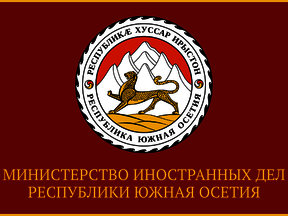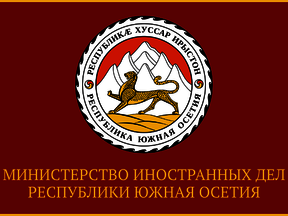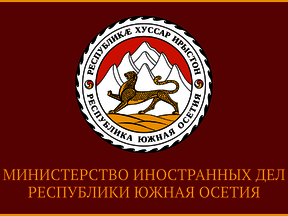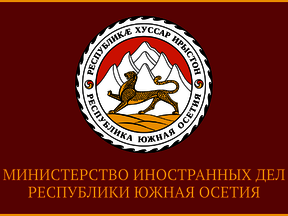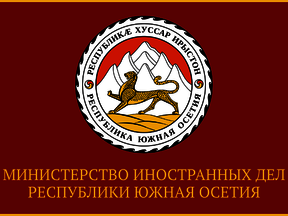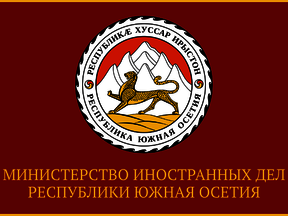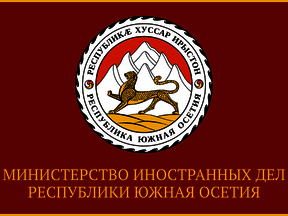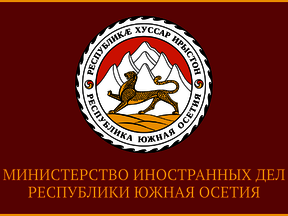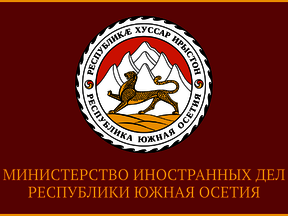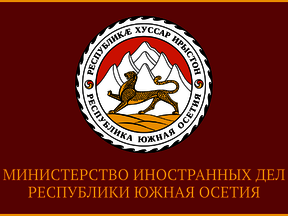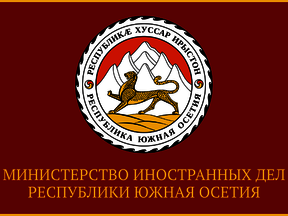As the events reveal, the Statement of Georgian President Mikhail Saakashvili, on the abolition of entry visas to Georgia for the citizens of the Russian Federation made in his annual address to Parliament on February 27, 2012 is another propaganda ploy aimed not only at increasing the flow of Russian citizens in Georgia, but rather at the suggestion of an international myth of the "constructiveness" and "peacefulness" of foreign policy actions of the author of this idea.
News
April 23, the Report on 2012 Presidential elections in Russia held on March 4 made by the observers of the Council of Europe was heard at the Parliamentary Assembly of the Council of Europe. This document, being initially biased, disapproves the opening of polling stations in the territories of the Republic of South Ossetia and the Republic of Abkhazia which allegedly are ‘occupied territories of Georgia’.
On the 16th of April 2012 Minister of Foreign Affairs of Republic of South Ossetia received the Head of Tskhinval office of ICRC Pierre Reichel.
Mr. Pierre Reichel which ends his activity as the head of Head of Tskhinval office of ICRC represented to the Minister his successor Ms. Leanna Hutchins.
During the visit there were discussed issues of ICRC activity on territory of Republic of South Ossetia.
As it was earlier informed by the Ministry of Foreign Affairs, on the 8th of April 2012 the people of South Ossetia elected the President of state in full accordance with the Constitution of Republic and election legislation. However, some countries, particularly Azerbaijan, Georgia and US made statements of considering Presidential elections in South Ossetia “illegal”.
On March 27 President Mikhail Saakashvili, speaking at the plenary session of the Summit on Nuclear Safety in Seoul called South Ossetia and Abkhazia ‘black holes’ not only for the narcotics trade, but also for the smuggling of nuclear materials.
Today, when another round of discussions on security and stability in the Caucasus starts in Geneva, these statements are quite expected. Saakashvili and other Georgian leaders cannot do without mentioning of the "sick theme" of South Ossetia and Abkhazia in all their speeches. Summit in Seoul was no exception.
On 25 March 2012 another elections of the President of the Republic of South Ossetia were held in the Republic of South Ossetia.
On 12th March, 2012 the Georgian Deputy Foreign Minister Nino Kalandadze, speaking at a weekly press briefing, commented on the report of the U.S. Department of State Strategy for Drug Control. As Georgian politicians usually do Mrs. Kalandadze with the zeal of staff ill-wisher tried to turn the position of the report, which expressed concern about the level of drug crime in Georgia, against South Ossetia and Abkhazia, accusing them of drug trafficking.
On 12 March, 2012 the Statement of co-reporters Kastriot Islami (Albania) and Astrup Jensen (Denmark) of the Parliamentary Assembly of the Council of Europe (PACE) in Georgia was released in Strasburg.
The Republic of South Ossetia Minister of Foreign Affairs M.K. Jioev took part in the work of the round table devoted to the presidential elections in the RSO.
In the course of the meeting they discussed topical issues connected with the forthcoming elections planned on March 25, 2012.
The representatives of the Central Election Committee, Ministry of Defense, the Parliament of the Republic of South Ossetia, candidates for the Presidency, political scientists were invited to the round table.
Tskhinval, 6 March, 2012
On 4 March 2012, the citizens of the Russian Federation, permanent residents of the Republic of South Ossetia or those staying on the ballot day on its territory, took part in the elections of the President of Russian Federation.
Twelve polling stations were opened in South Ossetia. The elections were organized by the Embassy of the Russian Federation in the Republic of South Ossetia.
On 26 February 2012, a Referendum on the new draft Constitution of the Syrian Arab Republic was held in Syria. 7, 5 million citizens or 89, 4 % of those who took part in the Referendum on Sunday supported the new Constitution.
The results of the referendum showed that the people of Syria support the policy of the government oriented on the reforms which will contribute to the expansion of civil rights and liberties and building a modern democratic state.

